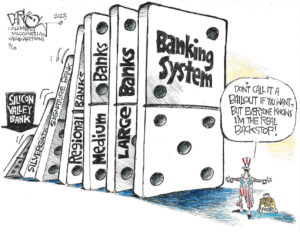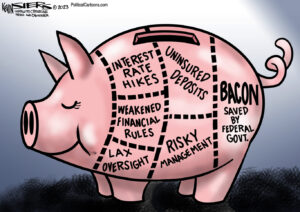Elizabeth Warren Is Running for the Senate
In the past few years, Elizabeth Warren proved herself one of the very few people in government committed to actually doing something about Wall Street greed, and she got kicked to the curb as a result. Now she is hoping to win back Ted Kennedy's Senate seat from Republican Scott Brown. (more)
In the past few years, Elizabeth Warren proved herself one of the very few people in government committed to actually doing something about Wall Street greed, and she got kicked to the curb as a result. Now she is hoping to win back Ted Kennedy’s Senate seat from Republican Scott Brown.
Warren recently helped set up the Consumer Financial Protection Bureau, which she also invented. Before that she was chair of the Congressional Oversight Panel, which served as watchdog to the bank bailout. Throughout the financial meltdown, Warren distinguished herself as a committed critic of the finance industry and a champion of working people.
Before she can take on Brown, Warren will have to best a half-dozen rivals in Massachusetts’ Democratic primary.
Though Brown is the rare Senate Republican representing a state some in his party deride as Taxachusetts, he is popular and Warren is a novice politician.
Aside from Warren’s oversight credentials, Democrats are counting on her fundraising ability. — PZS
Your support matters…AP via Google:
Democratic leaders are banking that her national profile will help her raise the money needed to topple Brown, who has more than $10 million in his campaign account.
A recent Boston Globe poll showed Brown as the most popular major politician in the traditionally Democratic state. Brown shocked the political establishment by beating Attorney General Martha Coakley in last year’s special election to succeed Kennedy. He was a little-known state senator who cast himself as a moderate, an average guy with his trademark barn coat and pickup truck. He once posed as a Cosmopolitan magazine centerfold.
Independent journalism is under threat and overshadowed by heavily funded mainstream media.
You can help level the playing field. Become a member.
Your tax-deductible contribution keeps us digging beneath the headlines to give you thought-provoking, investigative reporting and analysis that unearths what's really happening- without compromise.
Give today to support our courageous, independent journalists.




You need to be a supporter to comment.
There are currently no responses to this article.
Be the first to respond.